WS RISE partners with the community
By Chuck Byrd WS RISE
The goal of WS RISE is to have a plan broadly embraced so that the community can focus on implementation and align any needed resources. To ensure accountability and sustained commitment to planning implementation, WS RISE will convene eight working groups for six sessions to:
• Present their plans in a two-day summit;
• Facilitate the exchange of information and provide a forum for progress updates;

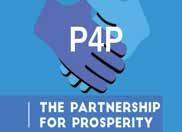
• Shepherd the plan to strengthen existing, Black-led organizations engaged in leading change.
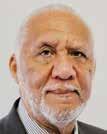




The Summit will address the social determinants of a flourishing community. The process will be led by a professional team, The Strategic Partners Collaborative. We will market this initiative to identify community working groups organized by eight subject areas — Education,
Health & Wellness, Food Sovereignty, Housing, Criminal Justice, Jobs/Workforce Development, Economic Development, and Civic Engagement. The organization also aims to devise action plans to close the racial gap in each area.
WS RISE will capture these detailed plans in a foundational document:
The way to solve big problems (even eating an elephant) is one bite at a time.

A Blueprint for East Winston. This document will be the heart of the city’s vision to transform Winston-Salem into a picture of an inclusive, thriving community by 2030.
To learn more about how you can join WS RISE and impact the community, visit wsrise.org.

We all know that there is a continuing need to improve the health and welfare of Winston-Salem’s underserved communities. That’s why we applaud the excellent work that WSRise and P4P are doing to help meet this need. These organizations have brought together many different individuals and groups with the common goal of raising the standard of living for Winston-Salem citizens. Together they are tackling tasks that range from finding ways to provide better health care to improving business and education opportunities in our lower income communities. That’s progress!
For
Sandra Miller Jones
SMSi Healthy Living Solutions, Inc. Founder & CEO
Lafayette Jones
Inside... 8 Factors Impacting Community Success... 4-5
Publisher, Urban Call; SMSi-Urban Call Marketing, Inc. President & CEO
Paula McCoy
WS RISE
Byrd Champions for the Community 5 P4P Ending Poverty: A Collaborative Approach 9
Chuck
You’re invited! Scan the QR code to see WS RISE events. Connect with WS RISE on Facebook or visit WSRISE.org.
a digital copy of Urban Call, visit http://Issuu.com/SmsiUrbanCallMarketing.com
The East Winston Collaborative Roundtable
The East Winston Collaborative Roundtable is a diverse group of individuals and organizations in Winston Salem’s Forsyth County. They are working to reach a common goal of eliminating racial disparities in the community.
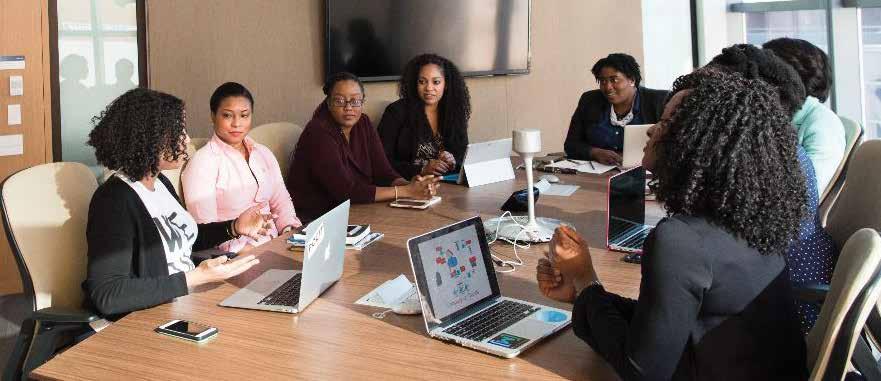
The goal is to build a thriving Black community by:
• Adapting, creating, or developing public policy.
• Influencing people’s behavior.
• Influencing
Institutional/Systemic change.
• Bringing resources to the Black community.
The purpose of a roundtable is to give each participant equal standing in a discussion, enabling them to contribute their perspectives and ideas freely and fully to the conversation. This type of discussion is short, usually lasting one to two hours, and is kept to an agenda by a facilitator.
To learn more, visit wsrise.org.
Why RISE in East Winston?
The East Winston community is geographically bound by Highway 52 on West 14th Street to North Cameron Avenue and East in Winston-Salem.
The
SMSi
Issuu.com/Smsiurbancallmarketing.com SegmentedMarketing.org
SMSi-Urban Call Marketing, Inc.

President and CEO; Urban Call Publisher: Lafayette Jones

Executive Editor: Alan Cronk
Editor: Rose Walsh
Production Manager: Jodi S. Sarver
Integrated Marketing Manager: Jessica De Valle Hale
Digital Services Director: Jimmy Davies, Every.Black
Video Production Manager: Chris Downey, Downey Digital, LLC
Photographer/Videographer: Donevan Cherry, CherVeli Media Financial Services: Roslyn Hickman
Warehouse, Collation & Shipping Manager: Vincent Harris
SMSi Healthy Living Solutions Inc.
SMSi Founding Chair and CEO: Sandra Miller Jones
National Project Manager: Constance Baker Harris
National Logistics Manager: Camille Allen
Director, Financial Services: Roslyn Hickman
Agent Ambassadors: Charlie Bethea, Alvin Borders, Yvette Canty, Constance Baker Harris, Talaya Loyd, Sharon Lyles, Natalie Nicholson, Debra Shore, John Wall
SMSi Community of Networks
East Winston’s ethnic ancestry and racial makeup are 75.9% African American and 12.3% Hispanic. Residents in the East Winston neighborhood are lowincome, and this is one of the most impactful contrib-uting factors in this community’s development.
It is among the lowest income neighborhoods in America, with 56.3 % of the children living below the federal poverty line. This is a higher rate of childhood poverty compared to 95.8% of U.S. neighborhoods.
More East Winston residents use mass transit in this neighborhood to get to and from work compared to 95.7% of all American neighborhoods. The community is the urban core of WinstonSalem and is also defined by median real estate prices that are less expensive than 62.3% of N.C. neighborhoods and 70.3% of all U.S. neighborhoods.
Many of the East Winston
neighborhood residences are well-built structures; constructed between 1970 and 1999. The real estate comprises small (studio to two bedroom) to mediumsized (three or four bed-room) apartment complexes and high-rise apartments. Most residential real estate is renter-occupied, and many of the homes and apartments are empty.
East Winston has a 16% vacancy rate higher than 77.4% of other American neighborhoods. This general-ly signals a low demand for real estate in the neighborhood or that a large amount of new housing has been built and not yet occupied. We know the latter is not valid.
One interesting and encouraging finding of the East Winston community is that it is an excellent location for college students, according to Neighborhood Scout’s exclusive research. Because of its popularity among college students who already choose to live here, its walkability and its above-average safety, the neighborhood is ideal for prospective or already-enrolled college students. Between semesters and during school breaks, there is
a noticeable change in the activity level of the community.
Parents of college-age children can rest easy knowing that this neighborhood has an above-average safety rating. The community is rated among the top 2% of collegefriendly places to live in the state.
The work done by WinstonSalem RISE, with its tag line of “Putting Black Folks First…for a Change,” includes more than the groups that make up the residents in East Winston.
We regard East Winston as the community we will initially serve. However, many Black people have been marginalized and impacted by racism. They may not physically live in the geographical footprint of East Winston, but they have experienced systemic racism.
Our goal is to productively address the scale of racism and inequity in Winston-Salem and its lasting impact on people and institutions to create change. Until we can begin this conversation and initiate change, racism will continue to persist in our city.
PAGE 2 URBAN CALL — HEALTHY LIVING EVERY DAY!
Courtesy of WS RISE
Community members meet during roundtable discussions.
SMSi Companies Corporate Offices 51 E. Fourth St., Suite 1702 Winston Salem, N.C. 27101-4257 Office: (336) 759-7477 Fax: (336) 941-3547
& Urban Call Community Outreach Office Goler CDC Center 899 North Liberty Street Winston Salem, NC 27101 Office: (336) 759-7477
WS RISE Committees have many perspectives



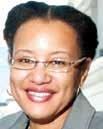







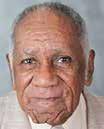

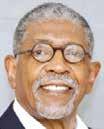


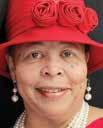
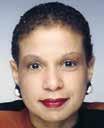
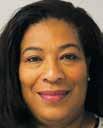


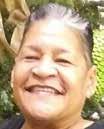
WS RISE

Not Pictured:
PAGE 3 URBAN CALL — HEALTHY LIVING EVERY DAY!
is made up of many community leaders who serve as Planning members* and Project Team participants**. For more information on these leaders and the organization, visit www.wsrise.org.
Anita S. Neville** CommYUnity Matters
Bill McClain* Education Workgroup Leader Guiding Institute for Developmental Education (GIDE)
Carol Davis, JD* S.G. Atkins CDC
Dr. Williams, Ph.D Author & Editor Dr. Phyllis Y. Joyner, MPH Ed.D** Educator
Dr. William T. Lewis, MSW** Ph.D.Project Team WillHouse Global & Author
Gloria Hairston* Jobs/Workforce Development Be One to Success Staffing, LLC /WSBCC
James Grace* Housing Workgroup Leader National Community Development Corporation (CDC)
Lakisha D. Jordan** Crown Consultants Group, LLC
Dr. David Peay* Criminal Justice Workgroup Leader Winston Salem State University (Retired)
Tommy Hicks* Community Leader
Margaret Robinson* Community Leader
Mary H. Kendrick** MHK Diversity
Michael Banner* Food Sovereignty Workgroup Leader Island CultureZ, Inc.
Michael Suggs* Jobs/Workforce Development Workgroup Leader Goler Community Development Corporation
Paula McCoy* Civic Responsibilities Workgroup Leader Partnership for Prosperity
Randon Pender* Health and Wellness Workgroup Leader Winston Salem Black Chamber of Commerce
Tonya Monteiro* Love Out Loud William J. Pickens, Sr.** Pickens Consulting
Alvin Atkinson * Center for the Study of Economic Mobility – WSSU
Sandra Stinson* Community Leader
Chuck Byrd** Project Team Leader Strategic Partners Collaborative
Arleatha Patterson* Partnerhip for Prosperity
L. Aynn Daniels, M.Ed., PMP** Certified Project Manager
William Dickens* Economic Development Workgroup Leader Triangle American Descendants of Slavery, ADOS
Lafayette G. Jones** SMSi & Urban Call Publications
Latrina Winford* Life Changes Coaching & Consulting
Marquita Wisley* Wise Consulting
New group will help all of Winston-Salem rise
By John Railey WSSU’S CENTER FOR THE STUDY OF ECONOMIC MOBILITY (CSEM)
After two decades of striving, WinstonSalem is finally making a strong comeback. The Innovation Quarter in the heart of downtown, that biotech bedrock, is thriving and makes national news. That’s good, but almost within a stone’s throw of the quarter, abject poverty remains in East Winston, cut off by redlining, then U.S. 52.
For years, city leaders have given lip service to East Winston revitalization plans that have, for the most part, fizzled, often because they did not involve the most important players, the residents of East Winston.
Finally, a new group is changing that. Winston-Salem RISE (wsrise.org) began in June 2020, the brainchild of local leaders Paula McCoy, the executive director of the Partnership for Prosperity, and Bill McClain, the executive director of GIDE, and others. “This is not a top-down led organization,” McCoy said. “This is grassroots-up.”
WS RISE has enlisted the support of many, including Winston-Salem State University’s Center for the Study of Economic Mobility, which shares WS RISE’s emphasis on breaking down the barriers to wealth-building in East Winston and reversing generations of poverty.
With a slogan of “Putting Black lives first … for a change,” WS RISE has a vision statement of “A just community that provides full access to opportunities & prosperity for all its citizens” and a mission statement of developing and partnering “with community-led initiatives
that eradicate all racial disparities for Black people.”
The group has been very intentional about its work, with Chuck Byrd, the CEO of Strategic Business Collaborative, serving as the project director and bringing his professional staff with him on the work.

Sandra and Lafayette Jones and their 40-year-old national companies, SMSi Healthy Living Soltions and Urban Call Marketing, have provided a wealth of strategic planning and marketing services. WS RISE, composed of 20 community groups with “lived experiences,” convenes eight working groups for eight key issues: education, health and wellness, food security, housing, criminal justice, jobs and workforce development, economic development, and civic engagement.
“We’re getting there on our plans,” Byrd said.
The groups will craft action plans to
close the racial gap on each issue and present their ideas at a two-day summit, open to the public this spring. The summit will aim to put those ideas to work through widespread involvement, including aligning resources. That’s crucial, for too often in Winston-Salem, nonprofits have inefficiently duplicated their efforts and competed over grant money as needs mount and the challenges of those eight key issues linger, only aggravated by the pandemic.
It’s lunacy that a city known nationwide for its biotech advances has many residents lacking access to quality health care or even adequate public transportation to get to doctors, grocery stores, work, and college. These are just a few of the inequities WS RISE aims to correct. The Rev. Martin Luther King Jr., whose legacy we celebrate this weekend, recognized how interconnected we really are, once saying,
“Whatever affects one directly affects all indirectly.”
The summit will define what’s needed for East Winston to finally flourish, as much of the rest of the city is currently doing.
Members of the group say a foundational document, “WS RISE, A Blueprint for East Winston,” will “be the heart of the city’s vision to transform Winston-Salem by the year 2030 into a picture of an inclusive, thriving community.”
The vision is ambitious as all get out, visionary, and perhaps even wildly optimistic. But it is sorely needed. And with the organization, talent, and grassroots strength WS RISE brings, it can succeed. Byrd said: “We’re going to do this like you eat an elephant: one bite at a time.”

PAGE 4 URBAN CALL — HEALTHY LIVING EVERY DAY!
John Railey is the CSEM Writer in Residence and former WinstonSalem Journal Opinion Page Editor.
Winston-Salem RISE is a grassroots organization to build community.
WS RISE wows with new website
The mission of Winston Salem RISE is to develop and partner with community-led initiatives that eradicate all racial disparities for Black people. RISE is a community collaboration committed to activating the efforts of local stakeholders in the triad community and restoring Winston-Salem to a place where racial disparities do not exist.
The organization designed a new website to inform the community of its upcoming developments and statistics related to the city to move forward in this endeavor. The website is chock full of data resources from articles to maps and infographics, and books to help you see the big picture in Winston Salem.
Viewers can also learn about the organization's upcoming summit and community efforts. The summit event will facilitate the exchange of information, provide a forum for progress updates, and shepherd the plan to strengthen existing Black-led organizations engaged in leading change. To accomplish this, WS RISE will hone in on eight social determinants of a flourishing communityEducation, Health & Wellness, Food Sovereignty, Housing, Criminal Justice, Jobs/Workforce Development, Economic
Development, and Civic Engagement. You'll be able to learn a bit about each group on the WS RISE website.
WS RISE will convene those eight working groups for six sessions to present their plans in this two-day summit to ensure accountability and sustained commitment to the planned implementation. The organization also aims to devise action plans to close the racial gap in each area. The process will be led by a professional team, The Strategic Partners Collaborative.
To learn more about WS RISE, its working groups and more, visit www.wsrise.org.
Join a WS RISE Equity Workgroup

Learn more about WS RISE
The Vision of Winston-Salem Rise (WS RISE): To create a just community that provides full access to opportunities and prosperity for all its citizens.
The Mission of WS RISE: To develop and partner with community-led initiatives that eradicate all racial disparities for Black people.
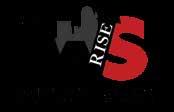
Overarching Goal: As a Black-led organization, WS RISE will play a convening role in the movement for racial justice in East Winston by working to reduce disparities in eight areas: Civic Responsibility, Criminal Justice, Economic Development, Education, Food Security, Housing, Health and Wellness, Jobs/ Workforce Development and the intersections of Transportation, Access to the Internet, and Child Care.
Our Plan
• Invite community organizations, leaders, residents, and institutional representatives to six community workgroup sessions that focus on these eight disparities.
• Culminate the WS RISE Summit sessions to develop an East Winston Blueprint for eradicating disparities in these eight areas.
• Align the eight community workgroups with agencies and institutions to implement changes in the Winston-Salem Black community.

• Monitor and lead in the programming and implementation of the blueprint to create the changes set forth.
East Winston-Salem’ Blueprint for Success
Putting Black People First for a Change
We would value your participation in our efforts and invite your participation in various areas of the program, including:
The East Winston Collaborative Roundtable. This panel includes a diverse group of individuals and organizations in Winston Salem (Forsyth County) working together to reach a common goal: eliminating racial disparities.
Workgroup sessions for organizations focusing on the community. Sessions will focus on the eight disparities affecting East Winston.
The Future Summit. This event will address the social determinants of a flourishing community, provide an analysis and summary of the workgroup sessions, and organize an execution plan.
PAGE 5 URBAN CALL — HEALTHY LIVING EVERY DAY!
You’re Invited! Connect with WS RISE on Facebook or visit WSRISE.org
Courtesy of Opine Media
Education

Factors Impacting Community Success
Housing
Children who are not reading on grade level are more likely to have poor education, health and employment outcomes later in life.
Homeownership has the dual benefits of improved housing stability and asset development/ wealth creation.

Health & Wellness

Jobs/Workforce Development/
Income
Infant health is often a leading indicator of not only the overall health of children, but also of a community’s health.
Grade Students Reading on Grade Level (2018-2019)
Third
About twice as many White children in Forsyth County are reading on grade level in the third grade compared to Black and Hispanic/Latino children.
Source: N.C. Department of Public Instruction
Residents Living in Owned Homes (2019)
In Forsyth County, almost twice as many White residents live in households who own their homes compared to Black residents in 2019.
Source: American Community Survey, Census Bureau
Percent of Births with Low Birthweight (2015-2019)
In Forsyth County, three times as many Black childbirths and almost twice as many Hispanic/ Latino childbirths are low birth weight compared to White childbirths.
Source: North Carolina Center for Health Statistics, National Center for Health Statistics
*Average for 2017-2019 where Forsyth County and North Carolina is an average for 2015-2019.

Stable employment and an income that covers the cost of basic living expenses are critical factors that impact the overall quality of life and well-being.
Householder Median Income (2019)
In Forsyth County, the median household income of White householders is almost double the median household income of Black and Hispanic/Latino householders in 2019.
Source: American Community Survey, Census Bureau
PAGE 6 URBAN CALL — HEALTHY LIVING EVERY DAY!
8
Black Hispanic/ Latino White Black Hispanic/ Latino White Black Hispanic/ Latino White Black Hispanic/ Latino White Forsyth County 37% 35% 74% 37% 52% 75% 18% 10% 6% $29,509 $38,183 $67,773 North Carolina 41% 43% 70% 46% 49% 75% 15% 7% 7% $41,177 $46,933 $65,244 United States — — — 44% 51% 74% 14% 8% 7% $43,862 $55,658 $71,664
Impacting Success
To reduce racial disparities in the East Winston Black community, Winston Salem RISE (WS Rise), Forsyth Futures and SMSi Healthy Living Solutions, Inc. studied eight social determinants impacting community success. Among those factors were education, housing, health and wellness, citizen responsibility, criminal justice, food security, economic development and jobs, workforce development, and income. Other factors can intersect with these determinants, including the effects of having children enrolled in nursery or preschool and a lack of access to the internet and personal transportation.
According to the Census Bureau's American Community Survey, conducted from 2015 to 2019, the national standard and county numbers demonstrate that 10% of White people enroll their children into nurseries or preschool, compared to 7% in the Black community. We see a similar disparity regarding internet access, whereas 20% of Black residents have no access, compared to 8% of White residents. Transportation also demonstrated an inequity between Black residents, 13% of whom had no personal vehicle, compared to 2% White residents.
Citizen Responsibility
Communities with higher levels of civic participation have a greater sense of community, lower levels of crime, and residents who are healthier and happier.
Electoral Participation in 2018 Election

In Forsyth County, fewer Black residents participated in the 2018 election at 48% compared to 56% of White residents.
Source: North Carolina Board of Elections Pew Research Center
Criminal Justice

Food Sovereignty
Incarceration can harm employment prospects, increase poverty, and result in behavior problems in children.
Prison Incarceration Rates per 100,000 Residents (2015)
In Forsyth County, the rate of prison incarceration of Black residents is more than five times the rate for White residents.
Source: Vera Institute of Justice
Food sovereignty is linked to health issues and cognitive, psychological, and behavioral challenges.

Percent of Residents Receiving Food Stamps (2019)
In Forsyth County, about three times as many Black residents and two times as many Hispanic/Latino residents are receiving food stamps compared to White residents in 2019.
Source: American Community Survey, Census Bureau
Economic Development
Business ownership and the value of businesses are essential drivers of wealth creation and assets.

Business Value by Owner (2012)
In Forsyth County, White business owners have an average business value that is ten times the average business value of businesses with Black business owners.
Source: Survey of Business Owners, Census
© WS RISE, Forsyth Futures, SMSi Healthy Living Solutions, Inc.
PAGE 7 URBAN CALL — HEALTHY LIVING EVERY DAY!
Black Hispanic/ Latino White Black Hispanic/ Latino White Black Hispanic/ Latino White Black Hispanic/ Latino White $67,773 48% — 56% 1,526 522 279 27% 20% 8% $48,052 $111,805 $490,645 $65,244 48% 35% 56% 1,305 333 331 28% 16% 8% $57,038 $148,676 $577,675 $71,664 51% 40% 58% — — — 26% 19% 8% $73,266 $155,806 $641,742
Youth (In)Justice: 1,909 children are arrested each day in the U.S.
[Black] children continue to be criminalized at alarming rates, and disparities have persisted. Many children—particularly children in poverty...children with disabilities; children with mental health and substance abuse challenges; children subjected to neglect, abuse, or other violence; children in foster care; and LGBTQ children—are pushed out of their schools and homes into the juvenile...or adult criminal [legal] systems.
In 2019, 696,620 children were arrested in the U.S. During the 2015-2016 school year alone. Over 61,000 school arrests and 230,000 referrals to law enforcement were overrepresented, mainly by students with disabilities, Black students, and Indigenous students. The prioritization of police over mental health professionals
in schools often leads to the criminalization of typical adolescent behavior and fuels the school-to-prison pipeline. Today, 14 million students attend schools with police but no counselor, nurse, psychologist, or social worker.
We Demand Change in
Winston-Salem
Lit City, a youth community organization group, joins the chorus of people, communities, and grassroots organizations of our city demanding deep change. We want schools to be springboards to flourishing, not pipelines to prison. We want Black youth to have all the economic, relational, and material resources necessary for their development!
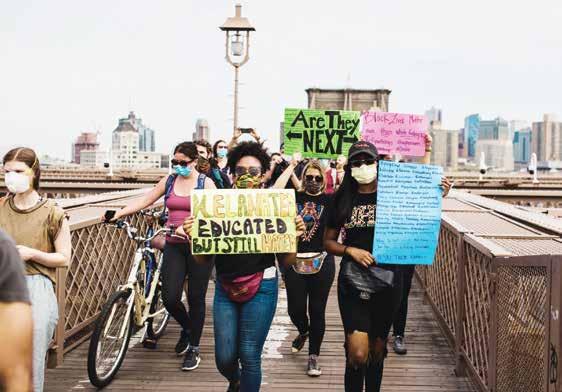
Glossary of Terms
Committee: A body of persons delegated to consider, investigate, take action on, or report on some matter.
Collaboration: The act of working together, especially on a goal or shared project.
WS RISE Planning Committee: The governing and oversight body making policies and charting directions, similar to a board of directors, composed of up to 20 Black-led organizations and community leaders.
WS RISE Executive Committee: The committee within the organization which has the authority to make decisions and ensures they are carried out.
WS RISE Project Team: The Strategic Partners Collaborative, a consulting group, contracted by the
WS Rise Planning Committee for programming, designing, marketing and facilitating the Workgroup Sessions and Summit.
Workgroup Sessions: Individuals who meet to address a critical public issue (8 social determinants of racial disparities) in a democratic, collaborative way. Participants examine the issue from many points of view and identify areas of common ground.
Social-Determinants: The conditions in which people are born, grow, live, work and age. These circumstances are shaped by the distribution of money, power and resources at global, national and local levels and are primarily responsible for inequities.
Food Sovereignty: The ability of communities to determne the quantity and quality of the food
Youth demonstrate during a Black Lives Matter protest.
You’re invited!
they consume by controlling how their food is produced and distributed.
Sustainability: Enough – for all – forever! – African Delegate to Johannesburg (Rio+10)
Racial Disparity: An unequal outcome one racial group experiences as compared to the outcome for another racial group**.
Summit: A two-day assembly that encourages round-table discussions, that empowers its participants (with lived experiences and decisionmakers) who seek ideal goals, and solutions.
**CSSP (2019). “Key Equity Terms and Concepts: A Glossary for Shared Understanding.” Washington, DC: Center for the Study of Social Policy. Available at: https://cssp.org/wp-content/ uploads/2019/09/Key-Equity-Terms-and-Conceptsvol1.pdf
Connect with WS RISE on Facebook or visit WSRISE.org.
Funding is Key
The friends of WSRISE are financial supporters of the organization.
WS RISE Planning Committee (all members)
Don and Robin Flow
Chuck and Cheryl Byrd
WSSU Center for the Study of Economic Mobility Hanes Foundation
Lafayette and Sandra Miller Jones, SMSi Companies
The Twenty Twin City Development Foundation
Winston Salem Foundation SG Atkins CDC
PAGE 8 URBAN CALL — HEALTHY LIVING EVERY DAY!
Ending poverty: A collaborative approach




 By Paula McCoy
By Paula McCoy
The initial efforts made by the Poverty Thought Force (now The Partnership for Prosperity [P4P]) proceeded from a fundamental commitment: povertyalleviation ideas and strategies would arise primarily from extended conversation and consultation with community members. No shortage exists across the globe of anti-poverty programs, policies, ideas, pilots, workshops, and the like. Yet, poverty stubbornly persists worldwide, including in North Carolina and particularly in Winston-Salem. Evidence suggests that local solutions, generated or reviewed by a community’s residents, are the likeliest route to improvement; the best anti-poverty research reaffirms the value of understanding and addressing poverty in a specific time and place.
This commitment has shaped the strategic direction of P4P for the coming years. Through a focused approach to ending poverty, P4P addresses social justice and equity issues that will help reduce
Inside...
poverty through a collaborative place-based approach. This placed-based strategy will allow us to work collaboratively with neighborhoods utilizing their existing assets to strengthen the community’s physical, social, structural, and economic conditions that ultimately affect the well-being of the children, families, and individuals who live there. It also allows us to work collaboratively with service providers, helping to “connect the dots” to the five social determinants of health (5SDoH) (listed above) that determine how residents live, work, play, age and worship. We have titled this collaborative approach “Moving Families Forward,” which implements a two-generation approach that creates opportunities for families by simultaneously equipping parents and children with the tools they need to thrive while removing the obstacles in
their way. This collaborative place-based approach will address family poverty, focusing on meeting the basic needs of low-income parents and their children by creating a web of support that nurtures the child academically, emotionally, physically, and socially, thereby combatting intergenerational poverty.
A drilled-down, concentrated approach to resource application and data analysis has never been made in our community. This experiment will allow us to assess whether this bottoms-up approach gives us the desired outcomes we seek before implementing efforts on a larger scale. We will continue promoting collaboration across neighborhoods, sharing successful best practices and measurements, and seeking short-term and long-term funding for sustainable solutions and longer-term results.
56 Recommendations for Ending Poverty... 10
The primary mission of our SMSi companies is to help our clients improve the health of underserved citizens. That’s why we are so pleased and excited to have the opportunity to work with P4P in the organization’s efforts to help alleviate poverty in WinstonSalem. P4P has done an outstanding job of identifying needs of our poor communities, and working on ways to address these needs. Many of the organizations efforts are highlighted in this Urban Call publication. It is our hope that you will read about these efforts and find ways to help P4P.
SMSi-Urban Call Marketing, Inc. 51 E. Fourth St. Suite 810 Winston Salem, N.C. 27101 Tel. (336) 759-7477/ FAX: (336) 759-7212 E-mail: SMSiPartners@smsi-net.com
 Sandra Miller Jones
SMSi Healthy Living Solutions, Inc. Founder & CEO
Lafayette Jones
Publisher, Urban Call; SMSi-Urban Call Marketing, Inc. President & CEO
Mayor Allen Joines
Paula McCloy
Sandra Miller Jones
SMSi Healthy Living Solutions, Inc. Founder & CEO
Lafayette Jones
Publisher, Urban Call; SMSi-Urban Call Marketing, Inc. President & CEO
Mayor Allen Joines
Paula McCloy
12
Executive Partnership
U.S.
PRSRT STD
POSTAGE PAID
Urban Call
11
The Poverty Thought Force identified five significant areas of concentration: Education, Health, Housing/Homelessness, Hunger/Food Sovereignty and Jobs/Workforce Development.
56 Recommendations for Ending Poverty
The Poverty Thought Force believes that the people of Winston-Salem and Forsyth County possess a collective will to bring our community back to a place where poverty is not a barrier to anyone's prosperity. That's why it delivered its report with 56 specific recommendations grouped around five aspects of poverty: education and life skills, health and wellness, jobs and workforce development, housing and homelessness, and hunger and food insecurity.
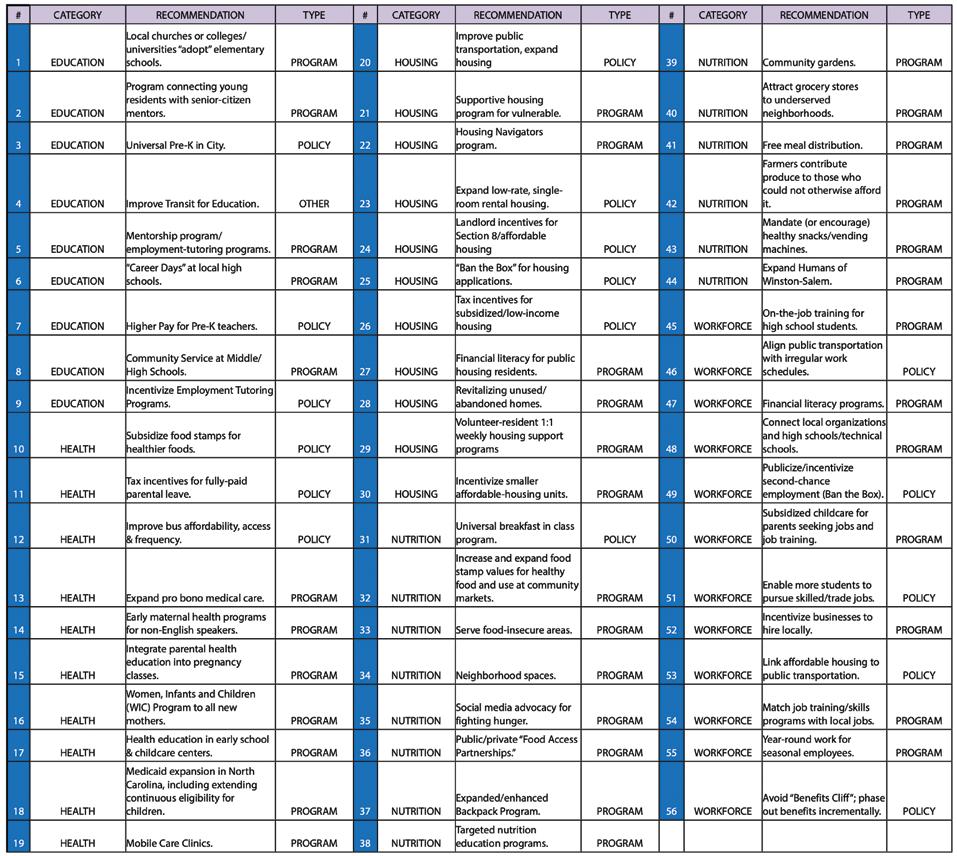
PAGE 10 URBAN CALL — HEALTHY LIVING EVERY DAY!
Community Assets and Resources Map

P4P informs residents with PartnershipFor ProsperityWS.org
Partnership for Prosperity seeks to change the narrative around poverty by building awareness and connecting community members with resources to move out of poverty and into Prosperity.
The Partnership for Prosperity disseminates valuable information that helps Winston Salem citizens in need through its website. The website includes a navigation menu with links to information about P4P and various resources available to the community.


There are also links to the organization's most recent efforts, including a community asset and resource map. There is also a link to partner agencies and information about giving opportunities.
You can also learn about Care4Carolina and its initiatives to close North Carolina's health insurance coverage gap. This endeavor seeks to allow more residents to enroll in Medicaid to access better health, jobs and resources.
In Winston-Salem and Forsyth County, approximately 400 nonprofit agencies and foundations, houses of worship, government agencies, initiatives, educational institutions, and other organizations provide direct or indirect relief to people experiencing poverty. The Community Assets and Resources Map shows many, if not most, of them. The Partnership for Prosperity, an initiative fighting poverty in the city and county worked with MapForsyth (the City-County Geographic Information office). The partnership hopes this map will help start a community dialogue about how to better coordinate the poverty fight. Toward that end, the map also shows food deserts, Census tracts and city and county bus routes. Please give us your input at our website, partnershipforprosperityws.org
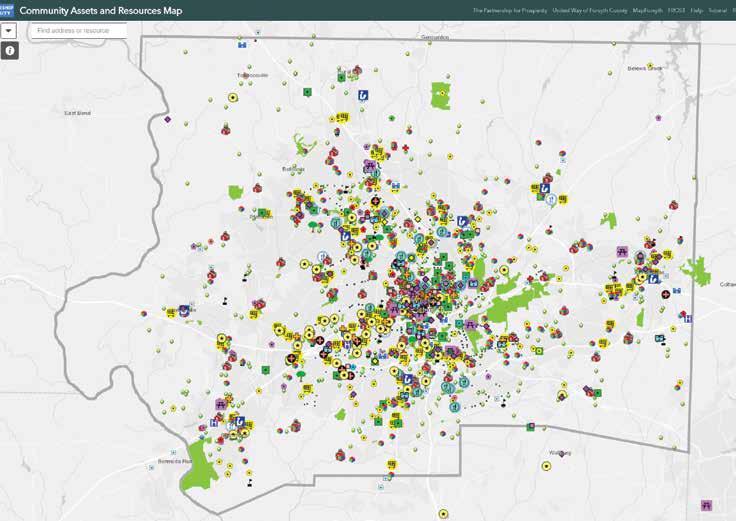
To use the interactive map, go to tinyurl. com/3n9uerk2 or use the QR code.

Interested in getting involved or learning more about P4P's Resident Advisory Board, Study Circles and more? We invite you to join us in creating a system to change the story of those living in poverty.
To learn more, visit partnershipforprosperityws.org.
The SMSi Companies Corporate Offices
51 E. Fourth St., Suite 1702 Winston Salem, N.C. 27101-4257
Office: (336) 759-7477 / Fax: (336) 941-3547
Issuu.com/Smsiurbancallmarketing.com SegmentedMarketing.org
SMSi-Urban Call Marketing, Inc.

President & CEO; Urban Call Publisher: Lafayette Jones


Executive Editor: Alan Cronk
Editor: Rose Walsh
Production Manager: Jodi S. Sarver
Integrated Marketing Manager: Jessica De Valle Hale
Digital Services Director: Jimmy Davies, Every.Black
SMSi Healthy Living Solutions Inc.
SMSi Founding Chair & CEO: Sandra Miller Jones
National Logistics Manager: Camille Allen Director, Financial Services: Roslyn Hickman
PAGE 11 URBAN CALL — HEALTHY LIVING EVERY DAY!
A business case for supporting poverty reduction efforts


 By Mayor Allen Joines CITY OF WINSTON-SALEM
By Mayor Allen Joines CITY OF WINSTON-SALEM
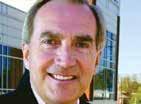


The number of people living in poverty in Winston Salem is predicted to be higher post-COVID, meaning there will be more people in our community living without access to basic goods, services, and opportunities for a steady source of income or higher income generation.
Meanwhile, businesses are constantly interacting with people living in poverty as workers, producers, and consumers. There is a need for multi-stakeholder partnerships created to drive inclusive prosperity and generate value for their business while creating a more
sustainable and inclusive path to economic growth, prosperity and well-being. Greater prosperity means a healthier, wealthier, and more able population that will produce the customers, suppliers and employees that companies need for sustainable growth.
Businesses can influence public policies, and their taxes help to fund essential public services. The private sectors’ active engagement in poverty reduction can promote improved productivity and quality of life through increasing income opportunities, expanding poor people’s choice and voice, and empowering communities by building skills and creating access to decent
jobs. And public-private-partnerships are pivotal in transforming rural women, with close to no employment perspectives, into the next generation of managers and leaders.
To accomplish this, businesses can take the following steps:
• First, businesses can transfer profits to charitable causes.
• Second, the business should reduce their prices.
• Third, business should employ more staff.
Businesses can prioritize the human capital of their own staff: paying them more or providing them with training or support.
Glossary of Sociological Terms
Lived experiences: Personal knowledge about the world gained through direct, first-hand involvement in everyday events rather than representations constructed by other people.
Marginalization: The process that occurs when members of a dominant group relegate a particular group to the edges of society by not allowing them an active voice, identity, or place to maintain power**.

Justice: The process required to move us from an unfair, unequal, or inequitable state to one which is fair, equal, or equitable, depending on the specific content. Justice is a transformative practice that relies on the entire community to respond to past and current harm in society. Through justice, we seek proactive enforcement of policies, procedures and attitudes that produce equitable access, opportunities, treatment and outcomes for all regardless of the various identities that one holds**.
Intersectionality: Coined by Professor Kimberlé Crenshaw in 1989, this term describes how race, class, gender, and other aspects of our identity “intersect,” overlap and

interact with one another, informing how individuals simultaneously experience oppression and privilege in their daily lives interpersonally and systemically. Intersectionality promotes the idea that aspects of our identity do not work in a silo. Intersectionality provides a basis for understanding how these individual identity markers work with one another**.
Food Sovereignty: The ability of communities to determne the quantity and quality of the food they consume by controlling how their food is produced and distributed.
Reconciliation: Not simply the cessation of hostilities or the willingness to coexist, but the cultivation of friendship and the creation of a community that bears witness to life beyond estrangement; to lives of embrace, yielding to the work on the reform and repair of institutional wrongs. – Gregory Thompson and Duke L. Keon, Reparations.
Sustainability: Enough – for all – forever! – African Delegate to Johannesburg (Rio+10)
Equity: The effort to provide
different levels of support based on an individual’s or group’s needs to achieve fairness in outcomes. Achieving equity acknowledges unequal starting places and the need to correct the imbalance**.
Inclusion: A state of belonging, when persons of different backgrounds and identities are valued, integrated, and welcomed equitably as decision-makers and collaborators. Inclusion involves people being allowed to grow and feel and know they belong. Diversity efforts alone do not create inclusive environments. Inclusion consists of a sense of coming as you are and being accepted, rather than feeling the need to assimilate.
Collaboration: The act of working together, especially on a goal or shared project.
Collaborative: Being collaborative means “getting outside of yourself” — not just listening to others’ ideas, but really hearing them
** CSSP (2019). “Key Equity Terms and Concepts: A Glossary for Shared Understanding.” Washington, DC: Center for the Study of Social Policy. Available at: https:// cssp.org/wp-content/uploads/2019/09/Key-EquityTerms-and-Concepts-vol1.pdf
Executive Board Serves Partnership


PAGE 12 URBAN CALL — HEALTHY LIVING EVERY DAY!
Mayor Allen Joines City of Winston-Salem Derwin Montgomery Government Relations Director, American Cancer Society
Debbie Wilson Chief Impact Officer, United Way of Forsyth County
Rogan Kersh, Wake Forest University Distinguished Professor
Dr. Antonia Monk Richburg President & CEO, United Way of Forsyth County
Vivian Perez Chandler Executive Director, Asset Building Coalition of Forsyth County
Paula McCoy Director, Partnership for Prosperity
Art Gibel
Retired President and CEO, Goodwill Industries of Northwest N.C.
Meet the P4P Governing Board
Arleatha Patterson Partnership for Prosperity
Not Pictured: Kimberlee McNeil, Community Ambassador; Cynthia Rucker, Urban League; Kaisha McDermott-Carter, Goodwill Industries
Santiago Ramos P4P Board Chairman Navigator Lead, Love Out Loud




















































 By Paula McCoy
By Paula McCoy
 Sandra Miller Jones
SMSi Healthy Living Solutions, Inc. Founder & CEO
Lafayette Jones
Publisher, Urban Call; SMSi-Urban Call Marketing, Inc. President & CEO
Mayor Allen Joines
Paula McCloy
Sandra Miller Jones
SMSi Healthy Living Solutions, Inc. Founder & CEO
Lafayette Jones
Publisher, Urban Call; SMSi-Urban Call Marketing, Inc. President & CEO
Mayor Allen Joines
Paula McCloy








 By Mayor Allen Joines CITY OF WINSTON-SALEM
By Mayor Allen Joines CITY OF WINSTON-SALEM






